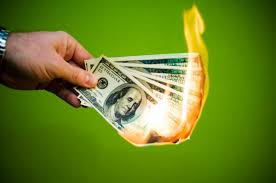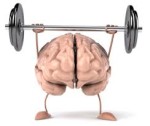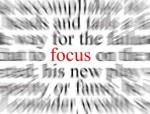
Musicians waste huge amounts of money when they take lessons.
I’m not saying music lessons are a waste of money. They’re not. Taking private lessons can turbocharge your musical progress.
I’m not talking about paying too much per hour for your music lessons. Really good teachers are worth every penny.
And, I’m not saying that music lessons are a waste of time. I fully believe that having a great teacher who personalizes information just for you is a great use of your time and money and will make playing music more fun and rewarding.
Here’s what I am talking about:
Most musicians aren’t taking advantage of everything they could be doing to get the absolute most out of their lesson experience. They’re missing opportunities that are costing them time, money, and effort. Because of these missed opportunities, these musicians are learning more slowly, advancing their skills less rapidly, and enduring unnecessary frustration.
Getting the Most Out of the Money You’re Spending on Lessons
1. Leave Every Lesson with a Written List of WHAT to Practice

Lessons are funny. Unlike working out at a gym, where the benefit comes from the workout itself, the benefit of lessons happens in between the lessons. Each time you see your teacher, they’ll make some corrections to your playing and give you some new material to work on. Then, your musical workout happens at home, when you’re by yourself. If you do not have a specific list of what to do, then your practicing (your musical workout) is a waste of time.
2. Get Better Information on HOW to Practice

Even when you do leave your lesson with a list of WHAT to practice, you may have no information on HOW to practice those items. So, you get home from your lesson, hopefully fired up to build your skills and finally learn that song you love, and you truly have no idea what to do first, second, or third. So, you’re stuck … again. This can go on for years if you’re not careful! Make sure you ask your teacher about the exact process you should be using when you practice at home. If your teacher can’t help you, get my Top Ten Practice Tips eBook.
3. Shoot Video at Your Lessons

If your smartphone is in your pocket during your lesson, you are missing a huge opportunity. During each lesson, (1) your teacher can shoot video of you playing to clearly point out something technical that needs correcting, and (2) you can shoot video of your teacher playing something and talking about the details you’ll need to focus on when you’re at home practicing.
4. Make Sure You Have Near-Term and a Long-Term Goals

Too many musicians start taking lessons because they want to “learn how to play the guitar” or “become a singer.” These ideas are so vague that they can’t really be called goals at all. Your lesson teacher won’t really know what to do with you if you aren’t more specific. You’ll get a lot more out of your lessons if you tell your teacher something like this: “I want to go to a blues jam session in about six months, and my real long-term goal is to play Stairway to Heaven.” With these specific goals out in the open, you will make a lot more progress, and your teacher will give you better lessons. This will give you a lot more bang for the bucks you’re spending.
5. Study with a Great Teacher, Not a Great Player

You may be studying with someone who is an amazing player but who is a mediocre, unfocused teacher. (OK, I’ll just come right out and say it: This person is a BAD teacher.) Just because a musician plays great does not mean that they can explain to others how to build the many, individual skills needed so you can also play great. Some virtuoso players acquired their skills so naturally that they’ve never really had to think of all the steps needed to perfect a specific skill. A famous, virtuoso player cannot necessarily help YOU become a virtuoso player. Find someone who knows how to teach.
6. Make Sure Your Teacher is Exactly Right for You

Even if you’ve found someone who has all the credential and is clearly a great teacher, they still could be the wrong teacher for YOU. Your teacher has to be fully on board with all of your goals. They must understand how to teach someone of your age, gender, level, and learning style. (Yes, learning style. The great teachers have more than just knowledge of music.) They need to understand the genre you’re most interested in. They must be able to give you exercises that get you closer to playing the songs you want to play. If you want more detailed information on how to find the perfect teacher, get my eBook on everything you need to know before hiring a music teacher.
7. Know the Difference Between Practicing and Performing

Oh, sure, you think you understand this, but you and your teacher have never really, truly had the talk. This is the discussion where your teacher tells you the number one secret of the world’s top musicians. What’s that secret? It’s this: Trying to perform a song by always playing through it from beginning to end, only to stop constantly to make little fixes when you play something wrong, is NOT practicing. That process (which I call the SAD Syndrome) is just a lame attempt to perform a song, as if you’re on stage. It has nothing to do with building muscle memory, improving your skills, and making you a better musician. You need to replace these unsuccessful attempts at playing through a song with something completely different, which is the focus of my Ten Minute Virtuoso method.
8. Never Try to Perform a Song Immediately

In addition to spending practice time attempting to play songs from start to finish, most music students think that, when they return for the next lesson, they should be able to perform the song assigned to them. Nothing could be further from the truth! If you think you’re going to get a new song up to performance readiness in a week, you’ll make all kinds of errors that will have long-term, detrimental effects on your forward progress. A more realistic way to spend your week is to have Mastery Goals, not Performance Goals. For instance, your Mastery Goal for the week might look something like this: I will have the A section of the song under control at 1/3 of performance speed, and I will figure out how I’m going to technically control the B section (fingerings, shifts, phrases, breathing, etc) and then work on the B section at 1/10 speed next week. These are goals you can actually achieve.
9. Be Completely Honest with Your Teacher

Don’t lie to your lesson teacher. Let’s say you played for an hour every day this week. And, let’s say that 55 minutes of that daily playing was spent on your favorite licks instead of working through your practice list. If that’s the case, please don’t tell your teacher that you practiced for an hour a day. Instead, tell them exactly what you did. Actually say, “I played an hour a day, but only five minutes a day was really practicing.” Your teacher will respect you more, you will respect yourself more, and your lesson will be tailored to this information.
10. Have Laserlike Focus Between Lessons

If you’re like most musicians, you do exactly what I just talked about: spend most of your practice sessions jamming on your favorite riff or playing through your favorite song while occasionally spending a few minutes of your practice time actually doing the stuff your teacher asked you to do. Why not reverse this? Do the warmup exercises, scales & arpeggios, technical details, and other boring material first. Then, work on the song you’re doing at the lesson. Only if you get through this stuff do you then reward yourself with a personal jam session, playing all your favorite licks, riffs, and songs. You already know how to play this music, so playing it can hardly be called “practicing” anyway!
11. (BONUS TIP) Write Everything Down Between Lessons

Each day when you practice, certain questions or issues will come up. Write these things down so you can ask your teacher about them at your next lesson. You will NOT remember these things if you don’t somehow capture them. Write them in a notebook, put a text or voice memo on your phone, or use whatever system works for you. But, put these ideas somewhere! The same goes for your metronome markings, reminders of where to start tomorrow’s practice session, and exactly what you accomplished today. Don’t trust your memory! If you’re looking for a system to help you, check out my Musician’s Practice Planner, the perfect place to write all this stuff down.
Any one of these Top Ten (er…eleven) Tips can have a huge impact on how much you’re getting out of your music lessons. Use all of them, and you’re likely to make twice the progress you’re making now!
